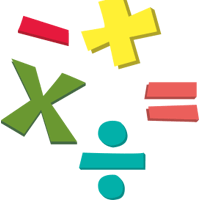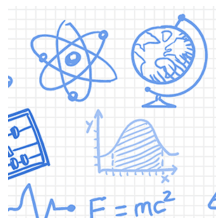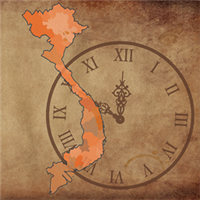-
-

-
Mầm non
-
Lớp 1
-
Lớp 2
-
Lớp 3
-
Lớp 4
-
Lớp 5
-
Lớp 6
-
Lớp 7
-
Lớp 8
-
Lớp 9
-
Lớp 10
-
Lớp 11
-
Lớp 12
-
Thi vào lớp 6
-
Thi vào lớp 10
-
Thi Tốt Nghiệp THPT
-
Đánh Giá Năng Lực
-
Khóa Học Trực Tuyến
-
Hỏi bài
-
Trắc nghiệm Online
-
Tiếng Anh
-
Thư viện Học liệu
-
Bài tập Cuối tuần
-
Bài tập Hàng ngày
-
Thư viện Đề thi
-
Giáo án - Bài giảng
-
Tất cả danh mục
-
- Mầm non
- Lớp 1
- Lớp 2
- Lớp 3
- Lớp 4
- Lớp 5
- Lớp 6
- Lớp 7
- Lớp 8
- Lớp 9
- Lớp 10
- Lớp 11
- Lớp 12
- Thi Chuyển Cấp
-
bai on tap o nha nghi phong chong dich benh mon tieng anh lop 7 moi
-

Bài ôn tập ở nhà nghỉ phòng chống dịch bệnh môn Ngữ văn lớp 6
Hệ thống kiến thức môn Ngữ văn lớp 6 Bài ôn tập ở nhà nghỉ phòng chống dịch bệnh môn Ngữ văn lớp 6 là tài liệu cho các em học sinh tham khảo ôn tập lại các kiến thức trong thời gian nghỉ dịch bệnh do Virus corona. 12.087 -

Bài ôn tập ở nhà nghỉ phòng chống dịch bệnh môn Toán lớp 8
Tài liệu ôn tập lớp 8 môn Toán VnDoc giới thiệu Bài ôn tập ở nhà nghỉ phòng chống dịch bệnh môn Toán lớp 8. Tài liệu bao gồm các câu hỏi hóa học hay giúp các bạn chuẩn bị tốt cho kì thi sắp tới 10.962
-

Bài tập ôn tập ở nhà trong thời gian nghỉ phòng chống dịch bệnh - Môn Ngữ văn 8
Bài tập ôn tập ở nhà Văn 8 VnDoc giới thiệu Bài ôn tập ở nhà môn Ngữ văn lớp 8 trong thời gian nghỉ phòng chống dịch bệnh viêm phổi do virus corona gây ra. Tài liệu bao gồm cả lý thuyết và các bài văn mẫu hay giúp các bạn chuẩn bị tốt cho kì thi sắp tới 5.641 -

Bài tập ôn tập ở nhà trong thời gian nghỉ phòng chống dịch bệnh môn Toán lớp 9
Tài liệu ôn tập lớp 9 môn Toán VnDoc xin giới thiệu Bài tập ôn tập ở nhà trong thời gian nghỉ phòng chống dịch bệnh môn Toán lớp 9. Mời các bạn tham khảo 4.231 -

Bài tập ôn tập ở nhà trong thời gian nghỉ phòng chống dịch bệnh môn Vật lý lớp 9
Tài liệu ôn tập lớp 9 môn Lí Bài tập ôn tập ở nhà trong thời gian nghỉ phòng chống dịch bệnh môn Vật lý lớp được VnDoc chia sẻ, nhằm củng cố kiến thức cho học sinh sau thời gian nghỉ Tết Âm lịch và nghỉ đợt dịch cúm nCoV 3.890 -

Bài tập ôn tập ở nhà trong thời gian nghỉ phòng chống dịch bệnh môn Ngữ văn lớp 10
Tài liệu ôn tập HK 2 môn Văn lớp 10 VnDoc xin giới thiệu Bài tập ôn tập ở nhà trong thời gian nghỉ phòng chống dịch bệnh môn Ngữ văn lớp 10. Mời các bạn tham khảo 3.798 -
![Bài ôn tập ở nhà nghỉ phòng chống dịch bệnh môn Ngữ văn lớp 11 [Cập nhật 18.02.2020]](https://st.vndoc.com/data/image/2019/11/29/icon-ngu-van-2003.png)
Bài ôn tập ở nhà nghỉ phòng chống dịch bệnh môn Ngữ văn lớp 11 [Cập nhật 18.02.2020]
Hệ thống kiến thức môn Ngữ văn lớp 11 VnDoc.com xin gửi tới bạn đọc bài viết Bài ôn tập ở nhà nghỉ phòng chống dịch bệnh môn Ngữ văn lớp 11. Mời các bạn cùng tham khảo chi tiết tại đây. 3.521 -

Bài ôn tập ở nhà nghỉ phòng chống dịch bệnh môn Vật lý lớp 8
Tài liệu ôn tập lớp 8 môn Vật lí Bài ôn tập ở nhà nghỉ phòng chống dịch bệnh môn Vật lý lớp 8 được VnDoc sưu tầm và đăng tải. Mời các bạn tham khảo chuẩn bị tốt cho HK 2 sắp tới của mình 2.788 -

Bài tập ôn tập ở nhà trong thời gian nghỉ phòng chống dịch bệnh môn Hóa học lớp 10
Tài liệu ôn tập lớp 10 môn Hóa học VnDoc xin giới thiệu Bài tập ôn tập ở nhà trong thời gian nghỉ phòng chống dịch bệnh môn Hóa học lớp 10. Mời các bạn tham khảo 1.573 -

Bài tập ôn tập ở nhà trong thời gian nghỉ phòng chống dịch bệnh môn Vật lý lớp 10
Tài liệu ôn tập lớp 10 môn Vật lý VnDoc xin giới thiệu Bài tập ôn tập ở nhà trong thời gian nghỉ phòng chống dịch bệnh môn Vật lý lớp 10. Mời các bạn tham khảo 1.304 -

Bài ôn tập ở nhà nghỉ phòng chống dịch bệnh môn Sinh lớp 8
Tài liệu ôn tập lớp 8 môn Sinh học Bài ôn tập ở nhà nghỉ phòng chống dịch bệnh môn Sinh lớp 8 được VnDoc sưu tầm và đăng tải. Mời các bạn tham khảo chuẩn bị cho kì thi sắp tới 1.239 -

Bài tập ôn tập ở nhà trong thời gian nghỉ phòng chống dịch bệnh môn Lịch sử lớp 9
Tài liệu ôn tập lớp 9 môn Sử VnDoc xin giới thiệu Bài tập ôn tập ở nhà trong thời gian nghỉ phòng chống dịch bệnh môn Lịch sử lớp 9. Mời các bạn tham khảo 858 -

Bài ôn tập ở nhà nghỉ phòng chống dịch bệnh môn Hóa học lớp 11
Hệ thống kiến thức môn Hóa học lớp 11 VnDoc.com xin gửi tới bạn đọc Bài ôn tập ở nhà nghỉ phòng chống dịch bệnh môn Hóa học lớp 11. Mời các bạn cùng tham khảo chi tiết tại đây. 802 -

Bài ôn tập ở nhà nghỉ phòng chống dịch bệnh môn Toán lớp 12
Hệ thống kiến thức môn Toán lớp 12 VnDoc.com xin gửi tới bạn đọc Bài ôn tập ở nhà nghỉ phòng chống dịch bệnh môn Toán lớp 12. Mời các bạn cùng tham khảo chi tiết tại đây. 703 -

Đề ôn tập tổng hợp môn Toán lớp 6 tháng 2 trường THPT Chuyên Amsterdam
Bài tập môn Toán lớp 6 Đề ôn tập tổng hợp môn Toán lớp 6 tháng 2 trường THPT Chuyên Amsterdam cho các em học sinh tham khảo ôn tập 629 -

Bài tập ôn tập ở nhà trong thời gian nghỉ phòng chống dịch bệnh môn Địa lý lớp 10
Tài liệu ôn tập HK 2 môn Địa lớp 10 VnDoc xin giới thiệu Bài tập ôn tập ở nhà trong thời gian nghỉ phòng chống dịch bệnh môn Địa lý lớp 10. Mời các bạn tham khảo 606 -

Bài ôn tập ở nhà nghỉ phòng chống dịch bệnh môn Ngữ văn lớp 12
Hệ thống kiến thức môn Ngữ văn lớp 12 VnDoc.com xin gửi tới bạn đọc Bài ôn tập ở nhà nghỉ phòng chống dịch bệnh môn Ngữ văn lớp 12. Mời các bạn cùng tham khảo và tải về tại đây. 561 -

Bài tập ôn tập ở nhà trong thời gian nghỉ phòng chống dịch bệnh môn Lịch sử lớp 10
Tài liệu ôn tập HK 2 môn Sử lớp 10 Bài tập ôn tập ở nhà trong thời gian nghỉ phòng chống dịch bệnh môn Lịch sử lớp 10 được VnDoc sưu tầm và đăng tải. Mời các bạn tải về tham khảo chuẩn bị tốt cho kì thi HK 2 sắp tới 457 -

Bài tập ôn tập ở nhà trong thời gian nghỉ phòng chống dịch bệnh môn Sinh học lớp 10
Tài liệu ôn tập lớp 10 môn Sinh học VnDoc xin giới thiệu Bài tập ôn tập ở nhà trong thời gian nghỉ phòng chống dịch bệnh môn Sinh học lớp 10. Mời các bạn tham khảo 457 -

Bài ôn tập ở nhà nghỉ phòng chống dịch bệnh môn Lịch sử lớp 12
Hệ thống kiến thức môn Lịch sử lớp 12 VnDoc.com xin gửi tới bạn đọc Bài ôn tập ở nhà nghỉ phòng chống dịch bệnh môn Lịch sử lớp 12. Mời các bạn cùng tham khảo và tải về tại đây. 263 -

Bài ôn tập ở nhà nghỉ phòng chống dịch bệnh môn Lịch sử lớp 11
Hệ thống kiến thức môn Lịch sử lớp 11 VnDoc.com xin gửi tới bạn đọc Bài ôn tập ở nhà nghỉ phòng chống dịch bệnh môn Lịch sử lớp 11. Mời các bạn cùng tham khảo. 240 -

Bài ôn tập ở nhà nghỉ phòng chống dịch bệnh môn Địa lý lớp 11
Hệ thống kiến thức môn Địa lý lớp 11 VnDoc.com xin gửi tới bạn đọc Bài ôn tập ở nhà nghỉ phòng chống dịch bệnh môn Địa lý lớp 11. Mời các bạn cùng tham khảo chi tiết tại đây. 174 -

Bài ôn tập ở nhà nghỉ phòng chống dịch bệnh môn Sinh học lớp 12
Hệ thống kiến thức môn Sinh học lớp 12 VnDoc.com xin gửi tới bạn đọc Bài ôn tập ở nhà nghỉ phòng chống dịch bệnh môn Sinh học lớp 12. Mời các bạn cùng tham khảo chi tiết tại đây. 96



























